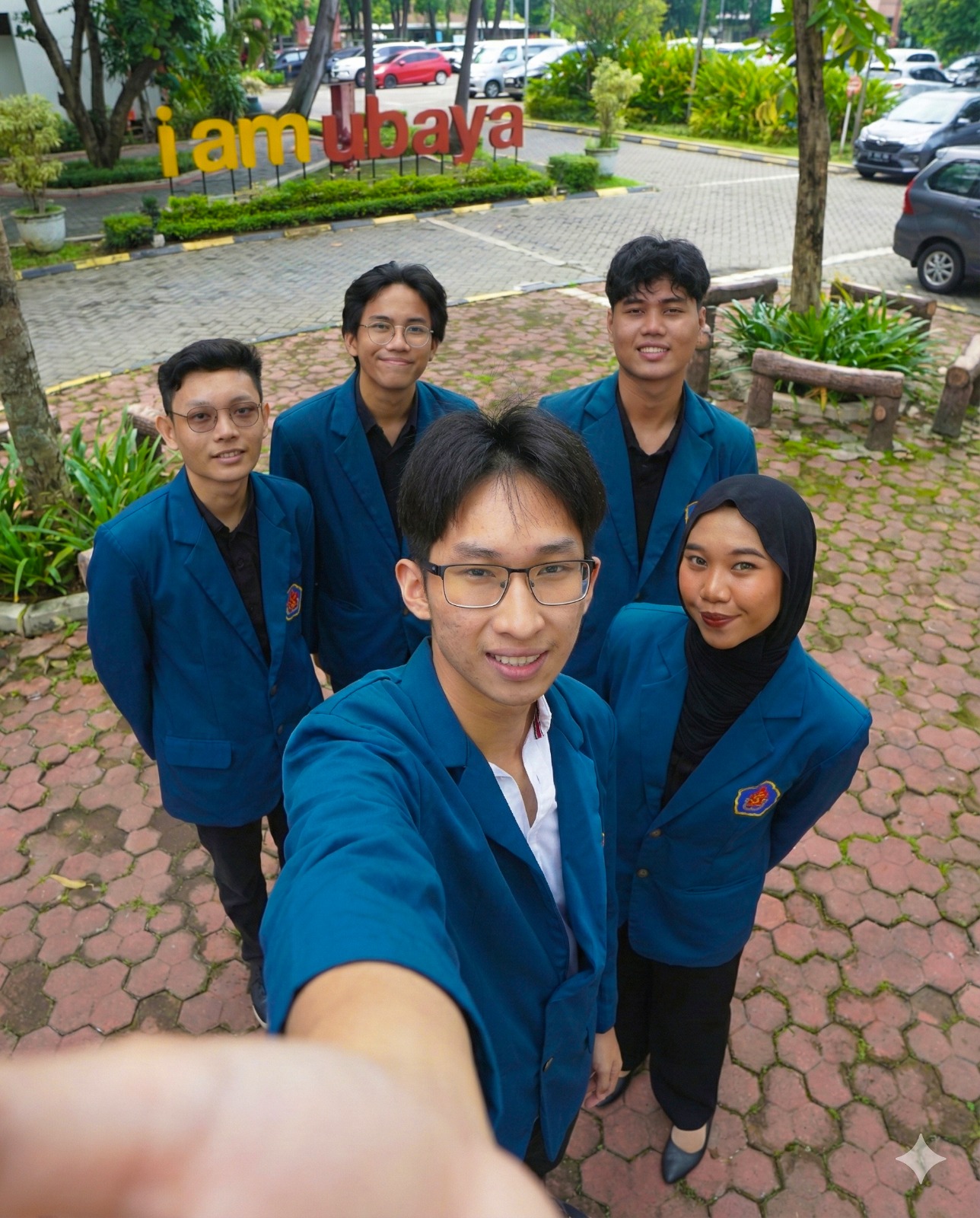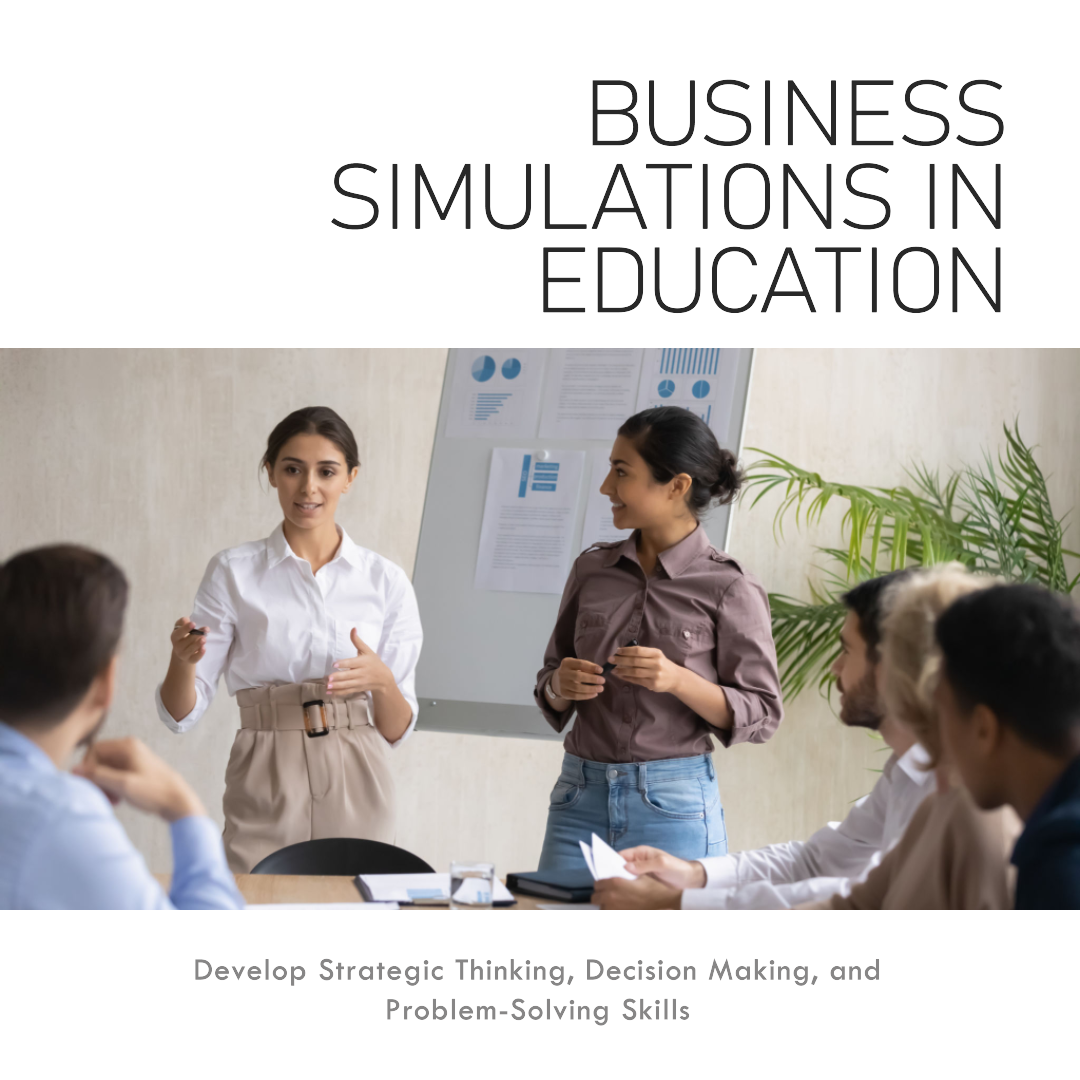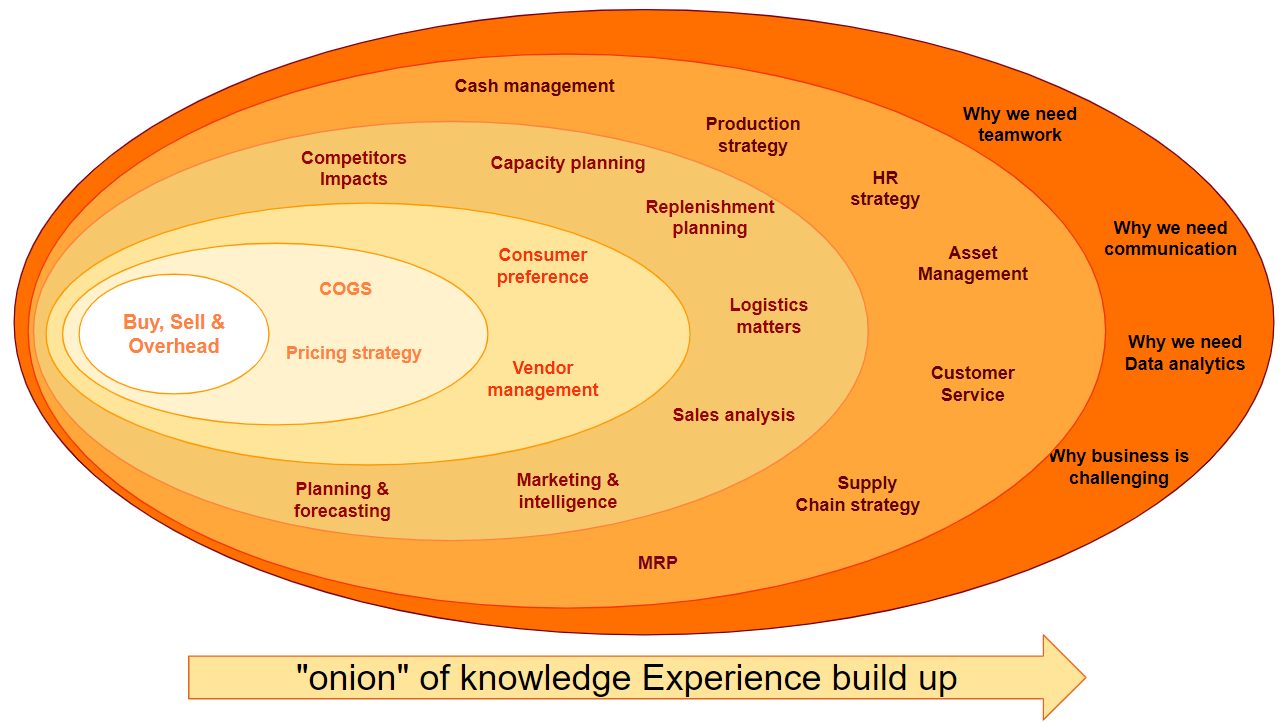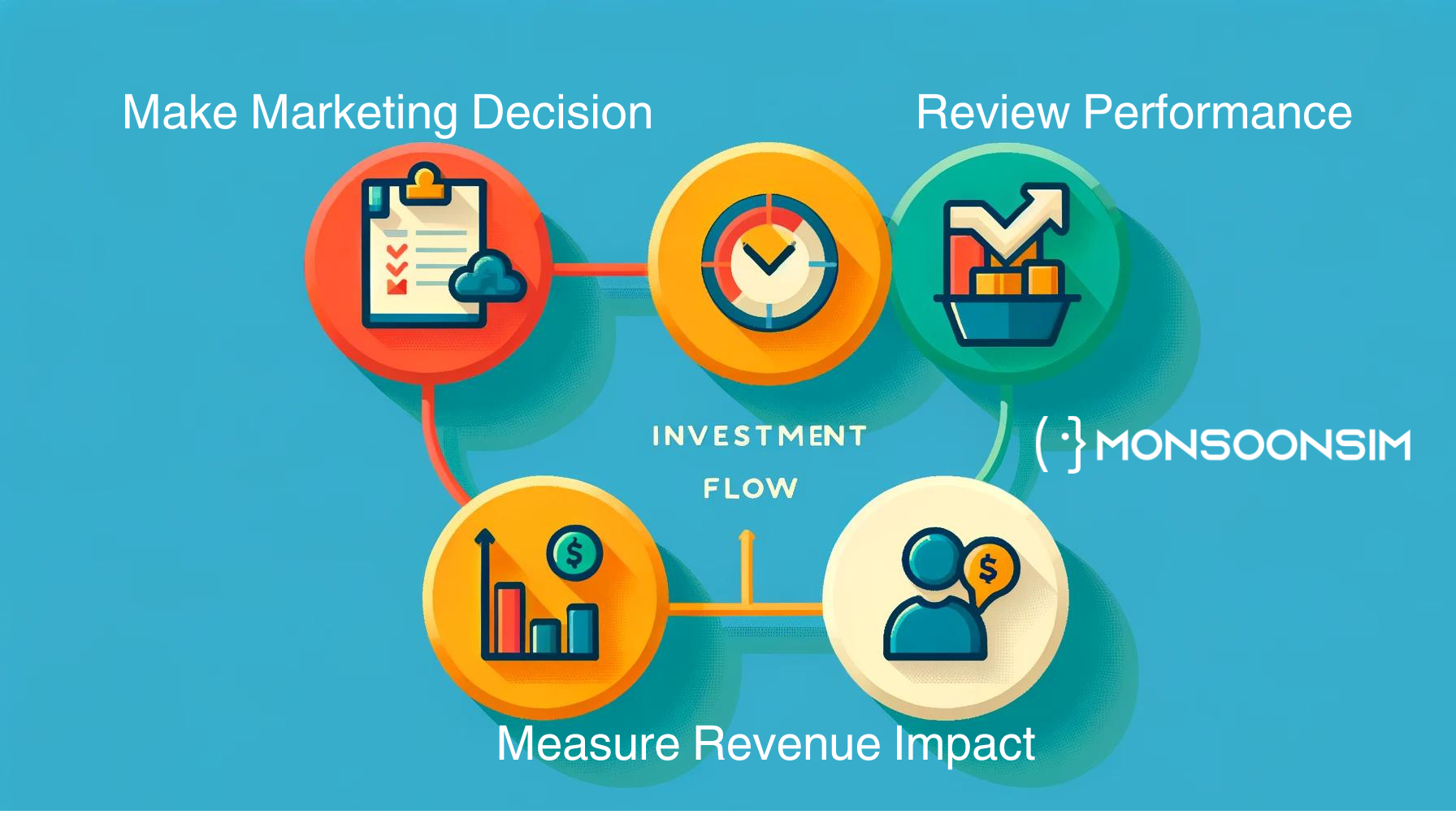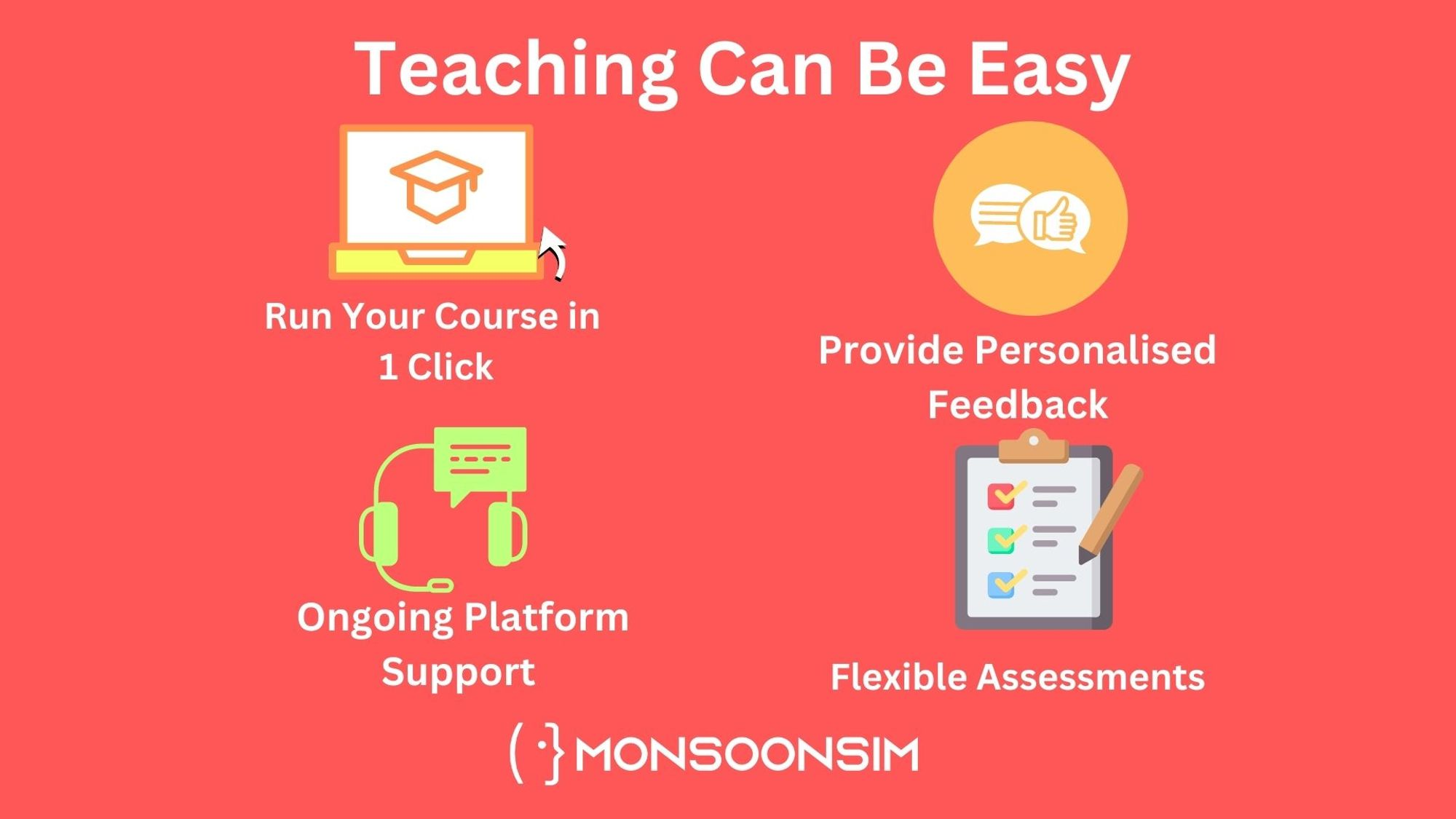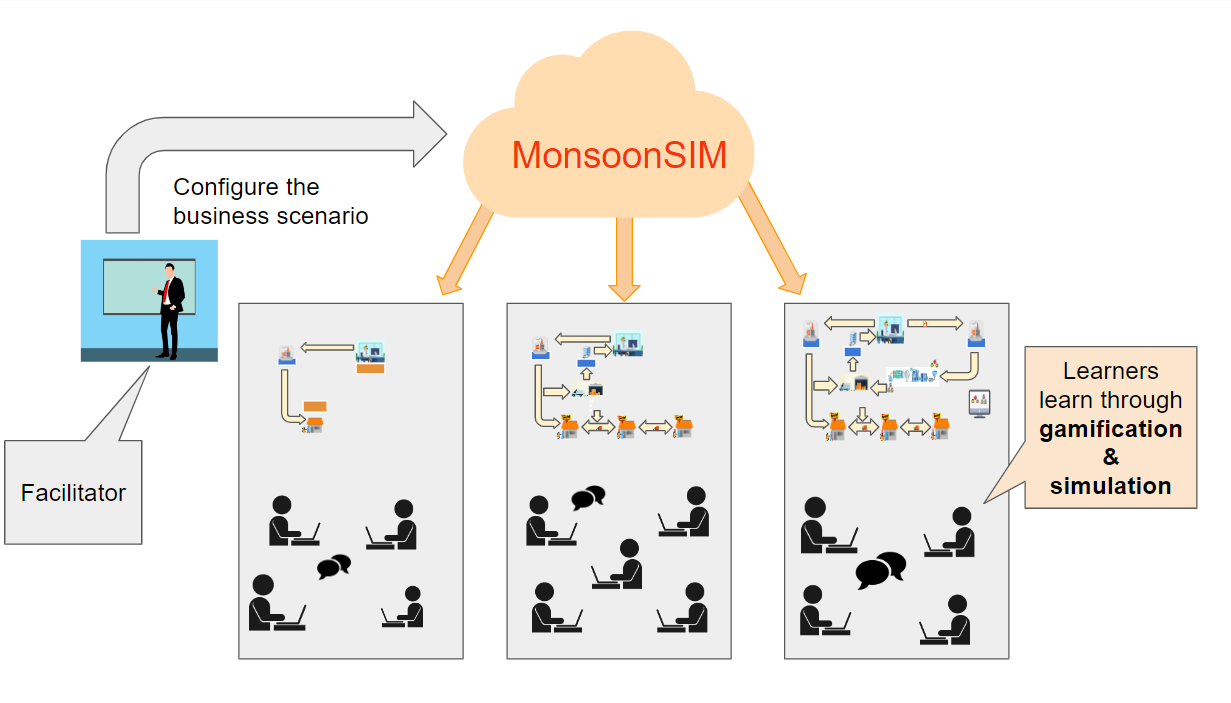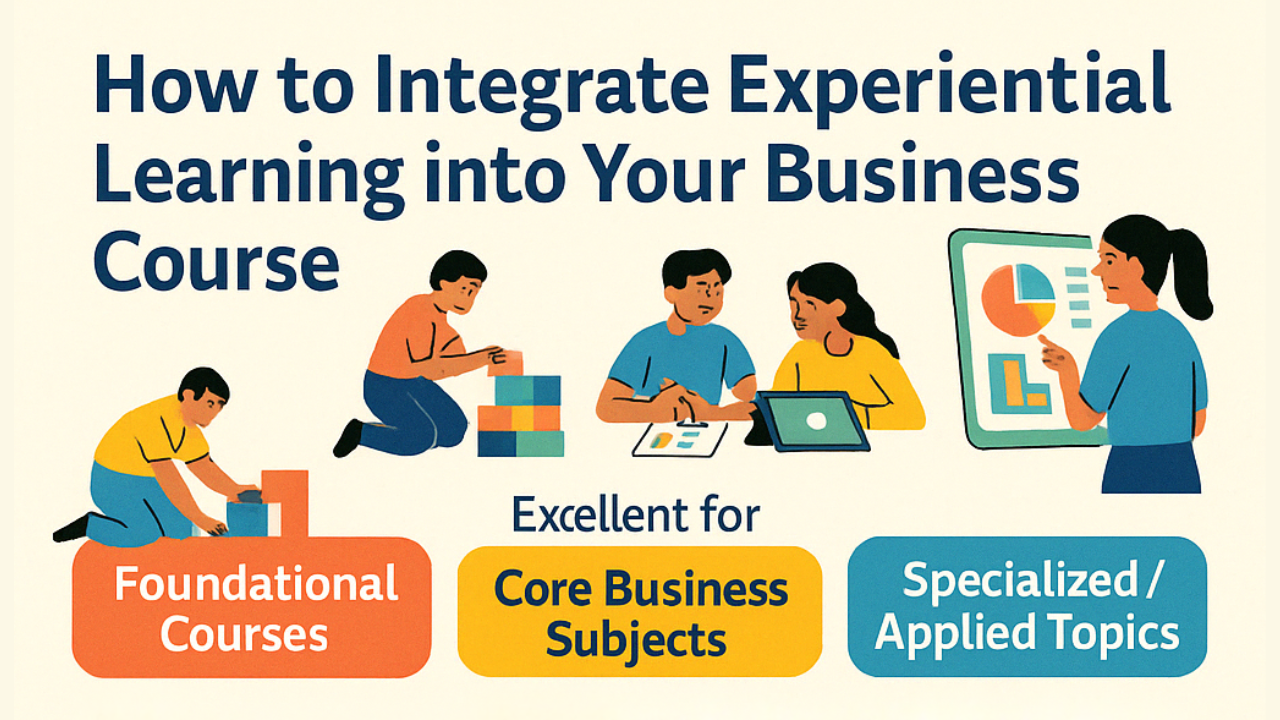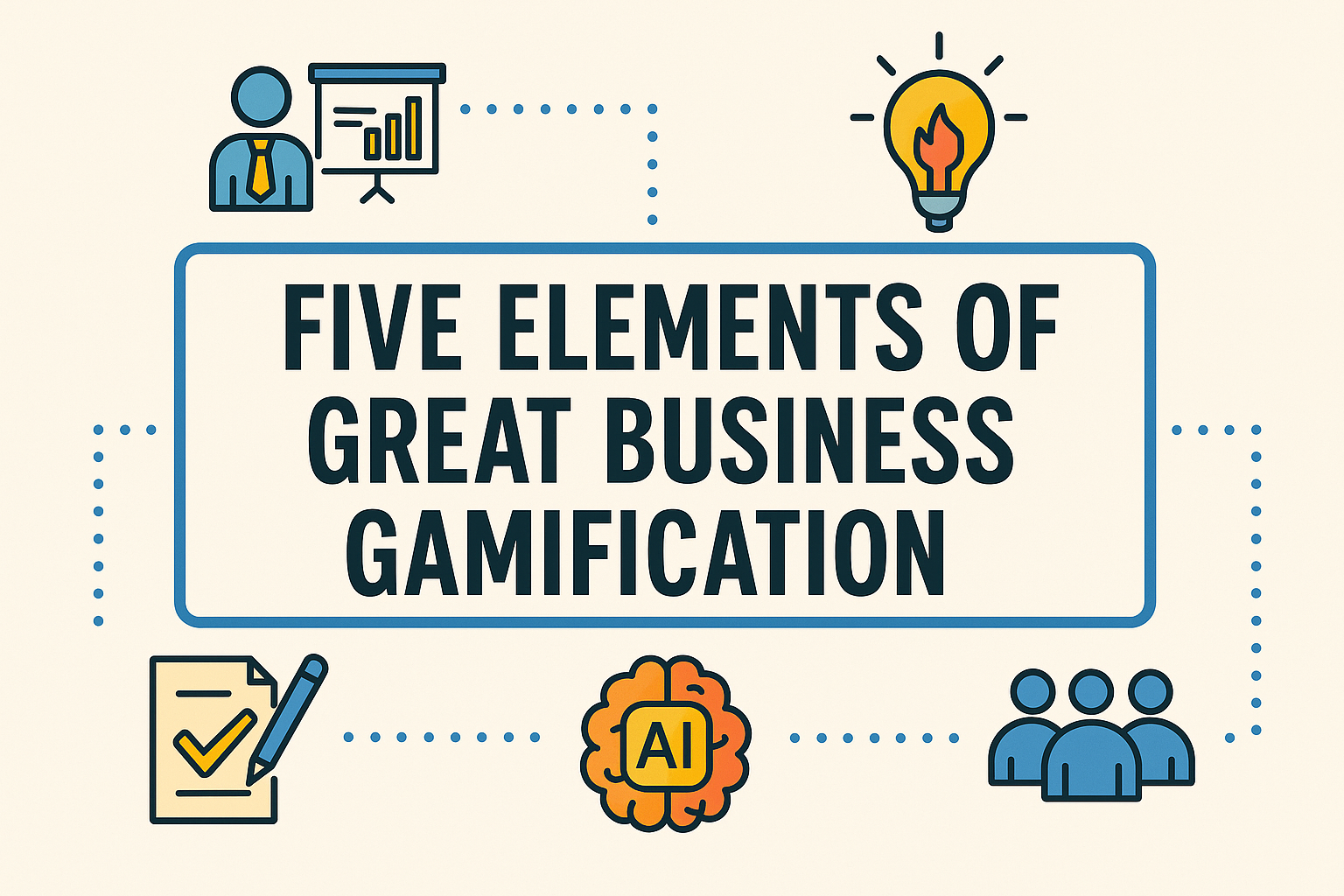The Power of Business Simulations: Engage and Educate with Immersive Experiences
Apr 16, 2025
- Overview of the impact of business simulations on business education
- Business simulations have several benefits for business education, including:
- How do Business Simulations differ from other learning activities such as case studies and lectures
- Why Traditional Teaching and Learning falls short:
- Understanding Simulations
- Applications of Business Simulations in Education and Student Testimonies
- Key Features of MonsoonSIM V12: Enhancing the Simulation Experience
- The Impact of Business Simulations on Business Education
- Implementing Business Simulations in the Classroom
- Here are the steps to take to implement them successfully:
- How Simulations Can Enhance Specific Business Disciplines
- Enhanced Skills Training for Corporate Environments
- Frequently Asked Questions
- Adapting Business Simulations for Different Learning Levels
- How can business simulations enhance teamwork and collaboration skills among students?
- How do Business Simulations apply Artificial Intelligence:
- What are examples of real-world business simulations and scenarios replicated by business simulations?
- How can Business simulations provide guidance for career development?
- How to Try Using Using Business Simulations In My Curriculum or Training Program?
The Power of Business Simulations: Engage and Educate with Immersive Experiences

Business simulations are interactive learning experiences that allow participants to experience real-world business situations and systems in a risk-free environment. They are used for business training, education, or analysis, and can be scenario-based or numeric-based Business simulations provide valuable opportunities for participants to develop crucial skills, align on strategy, and improve their business acumen and finance skills, ultimately leading to improved business performance and financial outcomes.
Overview of the impact of business simulations on business education
Business simulations have had a significant impact on business education, providing a more immersive and dynamic learning experience compared to traditional classroom learning, case studies, and role-playing exercises. Business simulations are a hands-on, interactive learning experience that allows participants to truly engage in the material, building skills, improving conceptual knowledge, and gaining a big-picture view of the organization all at once. Business simulations are a risk-free training field that allows students to develop crucial workplace skills in a controlled environment, bridging the gap between theory and practice.
Business simulations have several benefits for business education, including:
- Developing deep-learning skills: Business simulations require collaboration, critical thinking, problem-solving, and other soft skills that are essential in the workplace.
- Connecting theory and practice: Business simulations allow students to apply theoretical knowledge to real-world situations in a risk-free environment.
- Replicating realistic market environments: Business simulations can replicate complex systems and provide a more immersive and dynamic learning experience compared to case studies and role-playing exercises.
Ready to Bring Simulations to Your Program? Contact Us to discuss your training goals. Get In Touch!
Business simulations in business education aim to achieve various learning objectives, including:
- Strategic thinking
- Decision making
- Financial analysis
- Market analysis
- Operations
- Teamwork
- Leadership
Picture this: A business student enters the classroom, grappling with the complexities of managing an enterprise. Instead of a traditional lecture, they’re introduced to MonsoonSIM—a platform that places them in charge of a simulated company. As they navigate supply chains, strategize, and see their decisions unfold, abstract concepts start to make sense. By the end of the session, topics like inventory management and financial forecasting feel more accessible, their confidence visibly grown. Studies suggest that students who engage in simulations like these are significantly better prepared for real-world challenges. Why? Because they’ve experienced learning in action.
How do Business Simulations differ from other learning activities such as case studies and lectures
Traditional lectures alone often leave students disengaged, struggling to connect concepts like inventory management and cash flow. With simulations, these abstract ideas become tangible as learners see the immediate consequences of their decisions
- Immersive and dynamic: Business simulations provide a more immersive and dynamic learning experience compared to case studies and lectures. They allow participants to experience the consequences of their decisions and gain a better understanding of complex systems. In contrast, case studies and lectures are more passive learning activities that do not provide the same level of engagement and interaction.
- Better retention of information: Business simulations can lead to better retention of information compared to case studies and lectures. This is because participants are actively engaged in the learning process and are more likely to remember information that they have experienced first-hand.
- Practical skills development: Simulations help participants develop decision-making, problem-solving, and critical-thinking skills, which are challenging to teach through theory alone. For instance, a student using MonsoonSIM reported, “I finally understood supply chain management when I saw how stockouts impacted my simulated company’s bottom line.”
- Interdisciplinary learning: Business simulations can provide interdisciplinary learning opportunities by interlinking different subjects and exposing participants to what they don’t know about managing a business. This can help participants gain a better understanding of how different disciplines work together in real-world business scenarios.
Overall, business simulations differ from other types of learning activities, such as case studies or lectures, by providing a 'learning by doing' experience that replicates real-world market conditions and factors, creating a more immersive and dynamic learning experience, leading to better retention of information, developing practical skills, and providing interdisciplinary learning opportunities.
Learn about the Essentials of Business Simulations updated for 2023 and how they simplify complex concepts.
Traditional Teaching | Business Simulations |
Passive learning experience | Active learning experience |
Limited opportunities for hands-on experience | Provides hands-on experience |
Limited opportunities for feedback and reflection | Provides opportunities for feedback and reflection |
Theoretical concepts | Practical skills development |
Limited interdisciplinary learning opportunities | Interdisciplinary learning opportunities |
Why Traditional Teaching and Learning falls short:
- Passive learning: Lectures and readings are often passive, meaning students are not actively engaged in the learning process.
- Lack of practical experience: There is a lack of opportunities for practical experience, which can make it difficult for students to apply theoretical knowledge to real-world situations.
- Limited retention: Research shows that traditional teaching methods alone, often fail to develop long-term memory, which can limit students' ability to retain and apply knowledge.
- Limited soft skill development: Traditional teaching methods often do not provide opportunities for students to develop soft skills such as communication
Want Real-World Learning? Contact Us to bring realistic scenarios into your curriculum with MonsoonSIM. Get In Touch!
Understanding Simulations
Simulations and games are used in a wide range of subjects, including business, science, medicine, history, and environmental studies. In this context, simulations and games are used as a complement to traditional teaching methods, and they have been increasingly used as educational tools. Recent publications have shown that the use of simulation software, tools, and games facilitates the practical understanding of complex systems and allows students to enhance their learning experience.
Here are some notable examples of simulations in education:
PhET Interactive Simulations: PhET Interactive Simulations is a collection of interactive educational simulations based around fundamental science concepts. They have found use in physics, chemistry, and biology education. PhET simulations are research-based, highly interactive, animated, and easy to use, creating a game-like environment that can be used to teach a wide range of science concepts
Virtual labs and simulations: Virtual labs and simulations are becoming increasingly popular in science education. They allow students to conduct experiments and practice data analysis skills in a risk-free environment.
MonsoonSIM: An award-winning business simulation and gamification education platform that has been used in business education since 2013. It is the leading gamification and simulation platform designed to simulate real-world business processes and environments. The platform has been used to teach a wide range of Business Programs and courses including Accounting, Management, and Business Analytics
What is MonsoonSIM / About MonsoonSIM
Applications of Business Simulations in Education and Student Testimonies
Accounting And Enterprise System Courses
Transforming Accounting Education with MonsoonSIM at Michigan State University
At Michigan State University, traditional methods of teaching Intermediate Financial Accounting I evolved into an engaging, hands-on learning experience through the integration of MonsoonSIM. Part of the B.A. in Accounting program, this innovative approach has revolutionized how students develop essential competencies like strategic problem-solving, critical thinking, and effective communication.
How It Works:
The course incorporates MonsoonSIM's simulation-based platform across four 45-minute game days:
- Practice Rounds (Day 1 & Day 2): Students familiarize themselves with inventory management, financial planning, and decision-making in a low-pressure environment.
- Competition Rounds (Day 3 & Day 4): Teams compete in real-time, applying what they’ve learned to manage virtual businesses under dynamic market conditions.
This structure immerses students in decision-making processes, bridging the gap between theory and practice in a way that traditional methods cannot.
The Impact:
Elevated Engagement:
- The simulation accounts for 10% of the total course points, incentivizing active participation through assessments based on:
- Attendance
- Performance in the game
- Reflection surveys
- Feedback reveals high levels of satisfaction among students, with many describing the experience as both fun and educational.
Exceptional Outcomes:
- 100% recommendation rate: In Summer 2022, all participating students advocated for the continued use of MonsoonSIM in the course.
- Real-world application: Students reported better understanding of inventory management and operational intricacies after experiencing these challenges first-hand within the simulation.
In Their Words:
- “I learned a ton about inventory issues for a business. I could apply terminology and concepts from the chapters directly to the game.”
- “Definitely! A fun, interactive way to teach us about inventory and the ins-and-outs of running a business.”
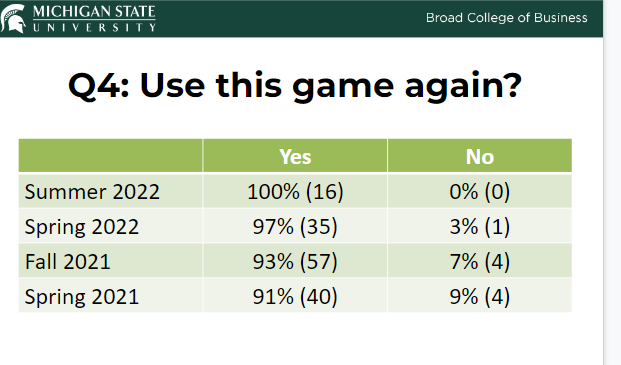
Explore our case studies from Michigan State University to see MonsoonSIM in action in a curriculum setting.
- Read about how MonsoonSIM is used toTeach and Learn Accounting with Simulation for a practical approach to complex concepts.
Enterprise Resource Planning (ERP)
Universiti Teknologi Malaysia (UTM)
At Universiti Teknologi Malaysia, MonsoonSIM has been used to enhance students' understanding of business and Enterprise Resource Planning (ERP) concepts. The simulation has been integrated into various aspects of enterprise resource management education, covering areas such as finance, production, retail, marketing, and more.
Implementation and Impact:
- Student Preparation: Students are required to read learner instructions, watch an introductory video, and register into pre-assigned teams.
- Learning Objectives: The simulation helps students understand the practical application of ERP systems, improving their knowledge and competence in managing business processes.
- Outcomes: A study involving 120 respondents, including both employed and unemployed students, revealed significant positive impacts. 85% of respondents reported that MonsoonSIM improved their workplace performance, with many acknowledging better preparedness for their jobs and an enhanced understanding of business operations.
Quotes from Students:
- "MonsoonSIM expanded my knowledge about how a business enterprise is run."
- "The simulation helped me understand the connections among various departments and improved my performance at work."
Survey Results:
- Expanded Knowledge: 40 students (33%) strongly agreed, and 49 (41%) agreed that MonsoonSIM expanded their knowledge about how a business enterprise is run.
- Understanding Departmental Connections: 41 students (34%) strongly agreed, and 43 (36%) agreed that MonsoonSIM improved their understanding of how different departments are interconnected.
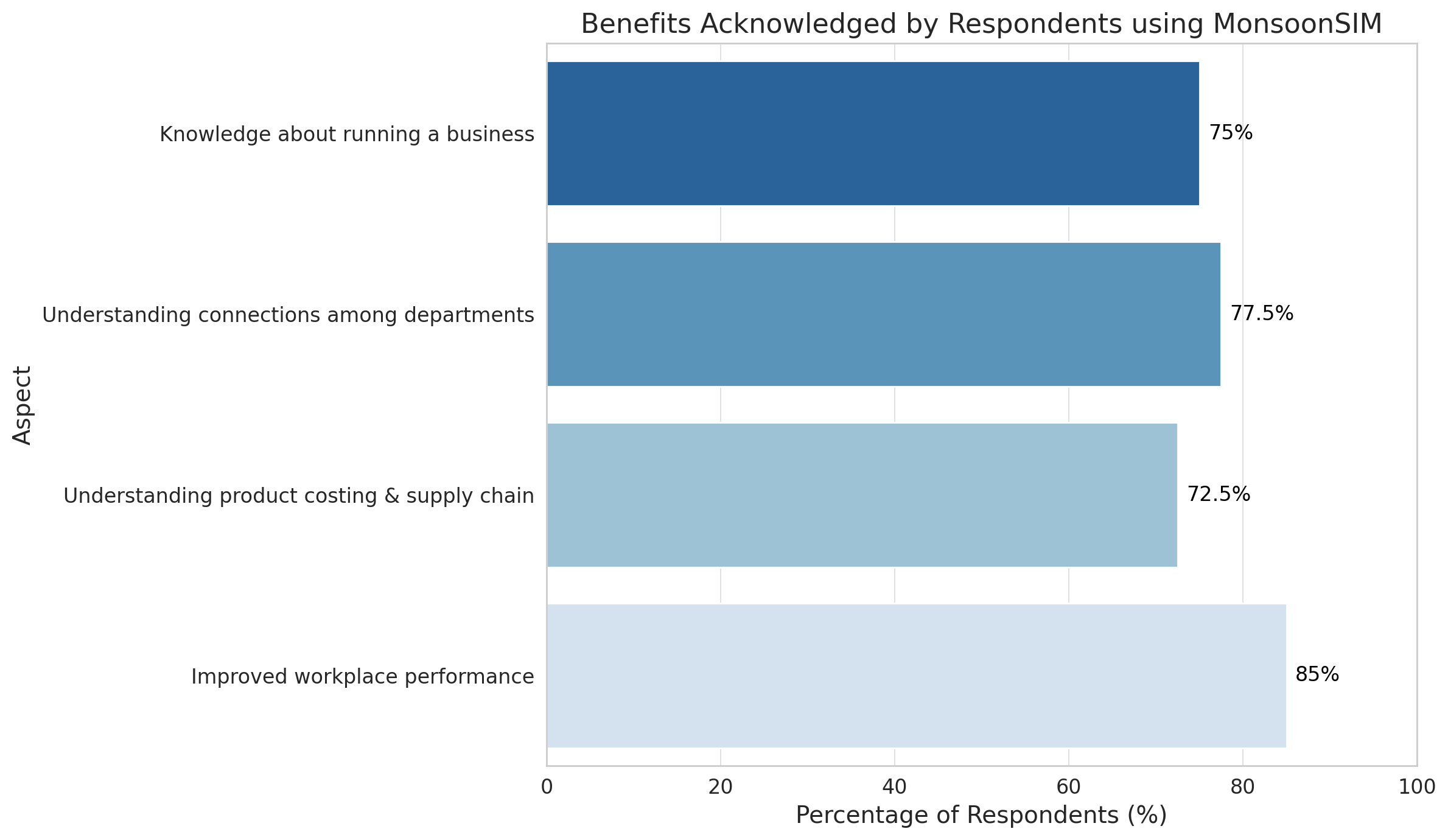
Impact on Employment:
- Employed Students: The survey found that MonsoonSIM significantly enhanced the employability and workplace performance of students. Respondents highlighted improvements in understanding product costing, procurement, and supply chain management.
- Unemployed Students: For students not currently employed, MonsoonSIM provided valuable insights into business operations, making them feel better prepared for future job opportunities.
Quotes from Students on Employment Impact:
- "I think that playing MonsoonSIM will help me better prepare for my job."
- "Playing MonsoonSIM will enable me to get the better job that I like."
- "I believe that playing MonsoonSIM will improve my competence as a worker."
Key Insights and Benefits:
- Enhanced Learning: MonsoonSIM provides a hands-on, interactive learning experience that significantly enhances students' understanding of business concepts and ERP systems.
- Practical Application: The simulation helps bridge the gap between theoretical knowledge and practical application, preparing students for real-world business challenges.
- Improved Employability: Both employed and unemployed students reported improved job preparedness and workplace performance, highlighting the simulation's role in enhancing employability skills.
Discover the essentials of enterprise resource planning tailored for newcomers with MonsoonSIM's new microcourse series: "Introduction to Enterprise Resource Planning for Beginners." This course is designed to demystify ERP systems, making them accessible and understandable for those starting in the business world.
Business Analytics
Business simulations, including platforms like MonsoonSIM, provide valuable opportunities for conducting business analytics. These simulations offer dynamic environments where users can engage in interactive decision-making and gain insights into key performance indicators. By immersing themselves in simulated business scenarios, students or professionals can analyze data, identify patterns, and make data-driven decisions. Integrating tools such as Tableau enhances the experience by enabling data visualization and the creation of interactive dashboards. Business simulations as a whole offer a powerful means for developing crucial skills in data analysis, understanding the impact of various factors on business performance, and making informed strategic choices based on the derived insights.
Explore how MonsoonSIM is transforming data literacy training in our feature: Revolutionize Data Literacy Training with MonsoonSIM – No Degree Required.
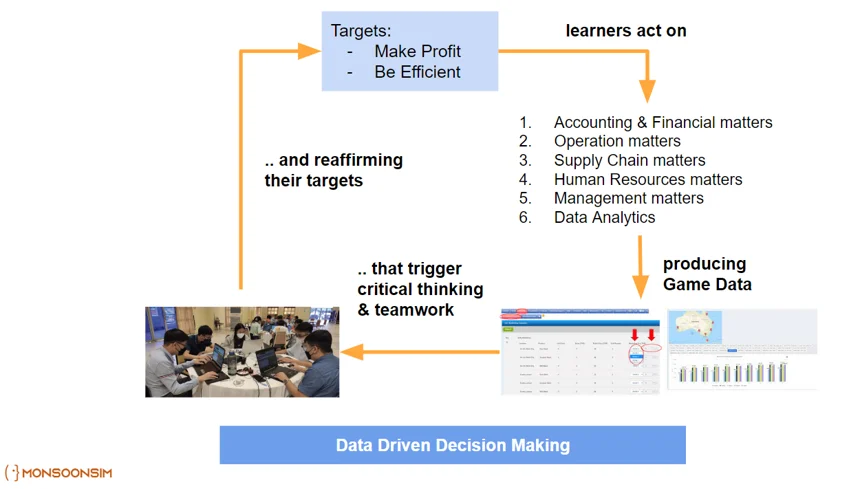
Key Features of MonsoonSIM V12: Enhancing the Simulation Experience
See AI in Action with a Free Trial! Try MonsoonSIM’s AI-driven guidance for free today. Start Free Today!
By incorporating these features into your curriculum, you can leverage the full potential of MonsoonSIM V12 to create a more engaging and effective learning environment.
The Impact of Business Simulations on Business Education
Case studies have shown the positive impact of business simulations on business schools. For example, a study published on ScienceDirect found that business simulations enhanced students' learning outcomes by improving their perception of the impact of competencies on learning. Another study published in the American Journal Of Business Education found that business simulations were perceived as useful teaching tools for management and marketing faculty in U.S. business schools.
The study found that business simulations can help students understand the basic knowledge in business subjects, and improve abilities, including human skills, basic analysis, critical thinking, problem-solving, and decision-making.
A case study conducted at Universiti Teknologi Malaysia (UTM) found that business simulations have shown a significant positive impact on business education. The study involved 120 respondents, 43% of whom were employed.
The findings revealed that a majority of the employed respondents agreed or strongly agreed that MonsoonSIM, a business simulation platform, enhanced their understanding of various business concepts and improved their performance at the workplace.
- 75% acknowledged that MonsoonSIM expanded their knowledge about how a business enterprise is run
- 77.5% reported an improved understanding of the connections among various departments. Furthermore,
- 72.5% stated that the simulation enabled them to better understand the concept of product costing and procurement and supply chain management.
- Most impressively, 85% of respondents agreed that overall, MonsoonSIM improved their performance at the workplace. These statistics underscore the transformative role of business simulations in business education, providing a more interactive, engaging, and effective learning experience.
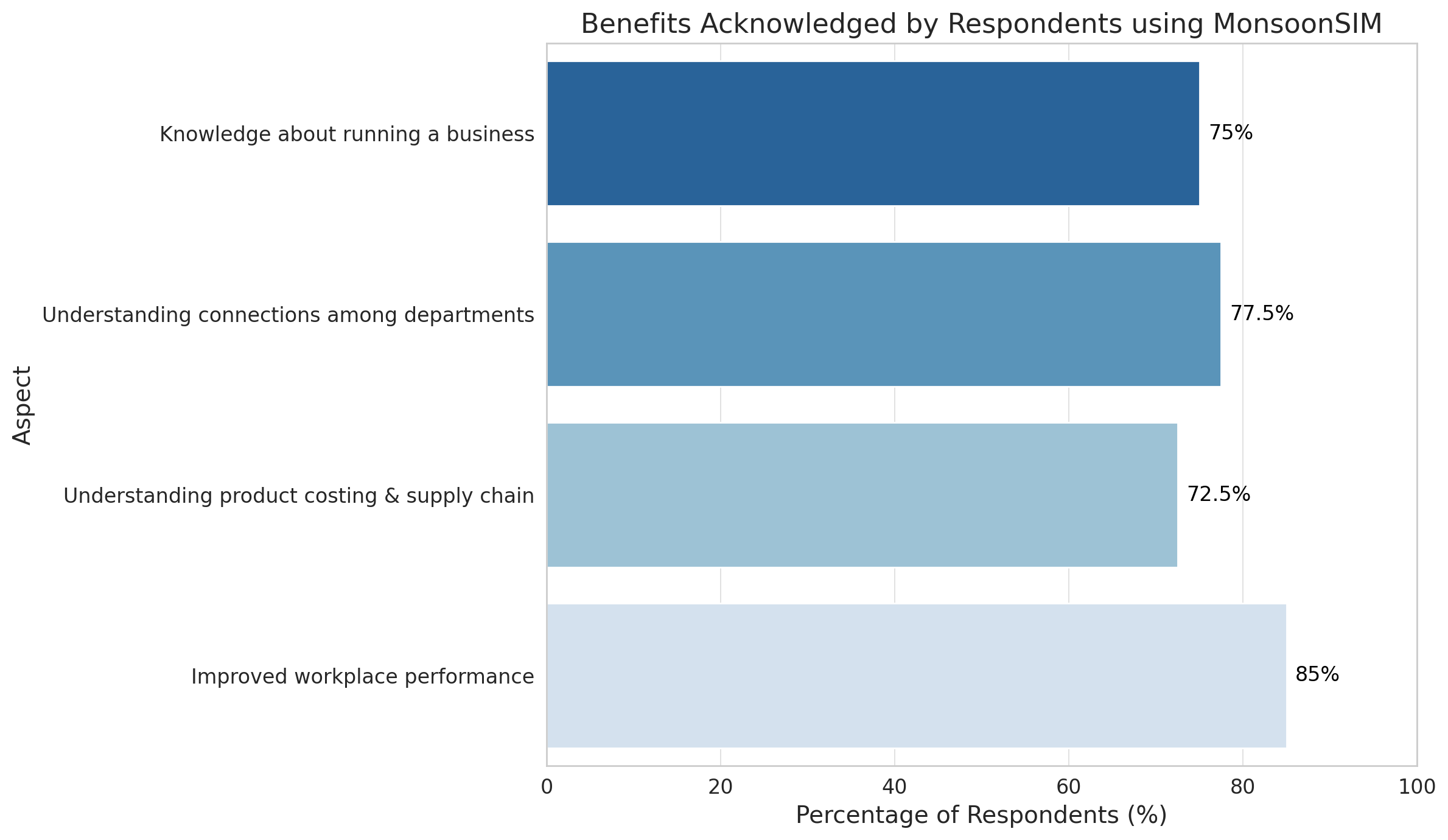
Discover the benefits of MonsoonSIM in management training through our article Transforming Management Training: Key Benefits of Business Simulation Games.
Implementing Business Simulations in the Classroom
Implementing business simulations in a curriculum is a strategic move that fosters experiential learning, enhances students' comprehension of complex business concepts, and prepares them for real-world challenges.
Discover How MonsoonSIM Facilitates Experiential Learning in a business context.
Here are the steps to take to implement them successfully:
- Identify the learners: Begin by identifying the learners and their needs. This will help you tailor the simulation to their specific needs and ensure that it is effective in achieving the desired learning outcomes
- Set learning outcomes: Determine the learning outcomes that you want to achieve through the simulation. This should include the knowledge and behaviors that the learner is expected to acquire after participating in the simulation.
- Determine the context: Determine the context of the simulation, including the type of case or scenario, and the level of fidelity. This will help you create a realistic simulation that is relevant to the learners.
- Prepare for the simulation: Prepare for the simulation by providing the necessary pre-simulation lesson preparation. This will vary depending on the type and complexity of the simulation. Most simulation creators suggest that simulations are best when they are tied to the course goals and instructors anticipate ways the simulation can go wrong and include this in their pre-simulation discussion with the class
- Active student participation: Effective learning comes through simulations when students are actively engaged. Students should predict and explain the outcome they expect the simulation to generate. Simulations are a preference as they help students understand (by experience) the time and decision-based conditions in a way a lecture can only mention
- Post-simulation debriefs: After the simulation, debrief the students to help them reflect on their experience and identify areas for improvement. This will help them apply what they have learned to real-world situations.
Looking to start? Look no further than here: Discover how to enhance your eLearning experience with MonsoonSIM's Free Trial Server
How Simulations Can Enhance Specific Business Disciplines
MonsoonSIM provides a powerful platform for enhancing students’ understanding of various business disciplines by immersing them in realistic simulations that replicate real-world business environments. These simulations allow students to apply theoretical knowledge in hands-on, dynamic scenarios, fostering deeper understanding and skill development in key areas like marketing, finance, supply chain, and human resources. For an overview of how monsoonsim can support business curriculum, take a look at our Curriculum Implementation Guide.
MonsoonSIM’s marketing modules enable students to create and execute marketing strategies in a competitive, simulated environment. By managing real-time market conditions and consumer behaviors, students can see the direct impact of their decisions.
Key Learning Areas:
- Market Analysis: Students can analyze market trends, consumer behavior, and competitors to make informed marketing decisions.
- Product Positioning: Learners experiment with different pricing and promotional strategies to optimize product sales and market share.
- Targeted Campaigns: The platform allows students to design marketing campaigns and adjust strategies based on consumer data, fostering a data-driven marketing approach.
Real-World Application: Students develop the ability to analyze market conditions, segment target audiences, and adjust product strategies, crucial for roles in marketing management and brand strategy.
2. Finance
MonsoonSIM’s finance modules are designed to teach essential financial management concepts, such as budgeting, financial reporting, and cash flow management. The platform allows students to make financial decisions and immediately observe their impact on a virtual company’s financial health.
Key Learning Areas:
- Financial Analysis: Students learn to interpret financial statements such as balance sheets, profit and loss reports, and cash flow statements.
- Budgeting and Forecasting: Learners manage budgets and forecast future financial needs based on real-time data, helping them understand the importance of financial planning.
- Investment Decisions: Simulations challenge students to make capital investment decisions, teaching them how to allocate resources for maximum return.
Real-World Application: This hands-on experience prepares students for careers in corporate finance, financial management, and investment analysis, equipping them with the skills to manage budgets, analyze financial data, and make informed investment decisions.
MonsoonSIM’s supply chain and logistics modules provide students with a detailed simulation of managing a complete supply chain, from procurement to delivery. Students can experiment with inventory levels, shipping logistics, and supplier negotiations to optimize their supply chain efficiency.
Key Learning Areas:
- Inventory Management: Learners manage stock levels, balance supply and demand, and optimize warehouse operations to reduce costs.
- Procurement and Supplier Negotiation: Students engage with virtual suppliers, learning how to negotiate contracts, secure favorable terms, and manage procurement cycles.
- Logistics Coordination: By overseeing transportation and logistics, learners explore ways to optimize delivery times and reduce operational bottlenecks.
Real-World Application: These skills are crucial for roles in operations management, logistics, and supply chain strategy, where efficient resource management and cost control are essential.
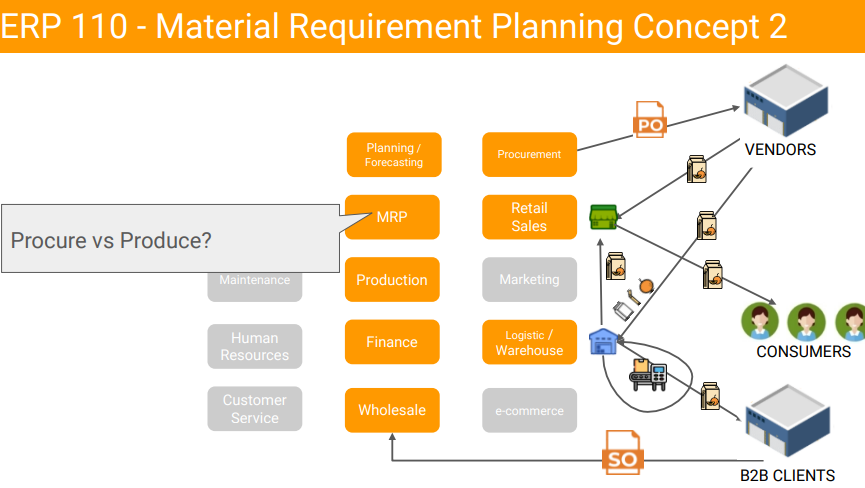
4. Human Resources
MonsoonSIM’s human resources (HR) modules simulate workforce management, allowing students to take charge of hiring, training, and managing employees in a virtual company. Learners encounter scenarios involving employee retention, performance management, and organizational behavior.
Key Learning Areas:
- Talent Acquisition and Retention: Students learn how to attract, hire, and retain top talent by managing recruitment processes and monitoring employee performance.
- Employee Training and Development: Simulations involve designing training programs and ensuring employee development aligns with company goals.
- Performance and Conflict Management: Learners are tasked with handling employee performance reviews, resolving conflicts, and managing teams to boost productivity.
Real-World Application: These simulations prepare students for careers in human resource management and organizational leadership, equipping them to manage teams, develop HR strategies, and handle workforce challenges.
5. Enterprise Resource Planning (ERP)
MonsoonSIM’s ERP modules provide an immersive experience where learners manage complex, interrelated business processes within a simulated company environment. By exploring areas like procurement, production, finance, and logistics, students gain a holistic understanding of how integrated systems support organizational efficiency. This comprehensive approach to ERP helps learners develop critical skills for managing resources, streamlining operations, and optimizing cross-functional workflows.
Key Learning Areas:
- Procurement and Supply Chain Management: Learn how to manage supplier relationships, purchase orders, and inventory levels to ensure smooth operations.
- Production Planning: Simulations cover scheduling, resource allocation, and production process management, helping learners understand the intricacies of manufacturing workflows.
- Financial Integration: Learners explore how ERP systems connect financial transactions to operational data, improving financial transparency and budget alignment.
- Inventory Control: Simulated environments allow Learners to manage stock levels, warehouse logistics, and demand forecasting for efficient inventory management.
- Data Analytics and Reporting: ERP modules emphasize the importance of data-driven decision-making, teaching learners to interpret reports and make strategic adjustments.
Real-World Application:
These ERP simulations prepare students for roles in operations management, supply chain coordination, and ERP implementation. By working with procurement, production, finance, and inventory within a virtual enterprise, participants gain practical skills relevant to industries that rely on efficient, integrated processes. This hands-on experience enables students to make strategic, data-informed decisions that enhance organizational effectiveness and prepare them for real-world challenges in ERP-focused roles.
Want to See Real Impact? Contact Us! Learn how MonsoonSIM can elevate your training programs with immersive simulations. Reach Out Now!
Investing in supply chain training is critical for corporate success, but achieving a strong return on investment (ROI) requires a solution that delivers measurable impact. MonsoonSIM provides a comprehensive, simulation-based training platform designed to maximize learning outcomes while reducing costs and inefficiencies. Here’s how MonsoonSIM can drive ROI for your organization:
Reduced Employee Onboarding Time
Traditional training programs can take weeks to familiarize new employees with supply chain processes. With MonsoonSIM, new hires engage in immersive, hands-on simulations that accelerate understanding of complex workflows. By learning through doing, employees gain confidence and competence faster, minimizing downtime and boosting productivity from day one.
Better Preparedness for Real-World Challenges
MonsoonSIM places employees in dynamic, real-world scenarios, such as vendor delays, fluctuating market demand, or logistical bottlenecks. This experiential learning approach equips teams to:
- Anticipate challenges proactively.
- Develop resilience in decision-making.
- Apply strategic solutions to mitigate risks effectively.
Prepared employees make fewer costly errors, helping organizations avoid disruptions and maintain operational efficiency.
Enhanced Decision-Making Skills
Supply chain operations hinge on effective decision-making. MonsoonSIM’s simulations train employees to analyze data, evaluate trade-offs, and make critical decisions in high-pressure environments. By practicing these skills in a risk-free virtual setting, employees can:
- Improve inventory turnover rates.
- Optimize procurement and logistics strategies.
- Adapt to shifting market conditions with agility.
These capabilities reduce the likelihood of missteps that could lead to financial losses or customer dissatisfaction.
Reduced Training Costs
Traditional training often requires significant resources, from external consultants to lengthy classroom sessions. MonsoonSIM’s scalable platform eliminates many of these costs by:
- Enabling self-directed learning.
- Offering reusable and customizable simulation scenarios.
- Reducing reliance on travel or expensive on-site workshops.
Organizations can scale training across teams and geographies with minimal incremental costs.
Real-World ROI
While exact ROI figures will vary based on company size and industry, the theoretical benefits of MonsoonSIM align with tangible business outcomes:
- Higher Operational Efficiency: Employees trained with MonsoonSIM make faster, more informed decisions, streamlining supply chain processes.
- Cost Savings: Reduced downtime and minimized errors translate to significant savings.
- Revenue Growth: Enhanced supply chain performance improves customer satisfaction, driving repeat business and growth.
Enhanced Skills Training for Corporate Environments
In today’s corporate landscape, practical skills are more essential than ever for driving business success. MonsoonSIM’s interactive simulations focus on developing these in-demand skills by offering hands-on, scenario-based training in areas like financial forecasting, project management, and cross-functional collaboration. Unlike conventional training methods, MonsoonSIM allows employees to practice real-world decision-making and strategic planning in a risk-free environment, leading to better preparedness and higher confidence on the job.
Key Areas of Skill Development:
- Financial Acumen: Employees engage in managing budgets, assessing cash flow, and making investment decisions, honing the critical financial skills necessary for sustaining corporate health.
- Project Management: Through simulation, employees learn to balance resources, manage timelines, and optimize workflows—skills directly applicable to project and operations roles.
- Interdepartmental Collaboration: MonsoonSIM’s environment fosters collaboration between simulated departments, helping participants understand cross-functional dependencies and how decisions in one area impact the whole organization.
By immersing employees in realistic business scenarios, MonsoonSIM equips them to handle similar challenges in their actual roles, bridging the gap between theoretical knowledge and practical application. This approach not only enhances individual competencies but also fosters alignment with broader corporate strategies.
Experience Customized Training with a Free Trial! See how MonsoonSIM adapts to your training needs. Start Your Free Trial!
Addressing Skills Gaps and Upskilling for Corporate Growth
As companies evolve, so do the skills needed to stay competitive. MonsoonSIM helps organizations address these evolving demands by providing a powerful platform for targeted upskilling in core areas, such as financial literacy, data analytics, and operational strategy. By practicing these skills in a simulation-based environment, employees can gain experience with real-world scenarios and sharpen the tools necessary for impactful decision-making.
Practical Upskilling and Adaptability:
- Real-World Skills in a Safe Environment: Participants can make critical decisions in areas like supply chain management and financial strategy, giving them a safe space to explore, learn, and grow without the risks tied to real-world mistakes.
- Pathways for Career Mobility: MonsoonSIM offers employees the chance to experience various roles and functions within a simulated corporate setting. By managing responsibilities in finance, HR, marketing, and more, participants can better understand interdepartmental roles, supporting lateral mobility and preparing employees for potential leadership positions.
For organizations looking to close skills gaps and build a more versatile workforce, MonsoonSIM offers an adaptable tool for career advancement and role diversification. Employees gain exposure to new areas of the business, helping them prepare for expanded roles and future challenges, which can ultimately boost retention and foster a culture of continuous learning and career development within the organization.
Experience Career-Ready Skills with a Free Trial! Try MonsoonSIM’s simulation-based training. Start Free Today!
Leadership Development through Business Simulations in MonsoonSIM
In any organization, developing leadership and decision-making skills is crucial for grooming future leaders. MonsoonSIM’s business simulations provide a unique platform for high-potential employees to cultivate these skills in a dynamic yet risk-free environment. By immersing participants in complex, real-world business scenarios, MonsoonSIM allows future leaders to practice and refine their decision-making abilities, strategic thinking, and crisis management without the fear of making costly mistakes.
Real-World Decision-Making in a Risk-Free Setting
MonsoonSIM’s business simulations offer employees the chance to step into leadership roles, where they must make high-stakes decisions across various departments such as finance, procurement, marketing, and human resources. In these scenarios, participants face realistic challenges, from managing budget constraints to navigating market fluctuations, giving them the opportunity to:
- Lead Under Pressure: Participants must act decisively, practicing how to lead teams through complex business situations such as a sudden market shift, supply chain disruption, or unexpected financial constraints.
- Practice Strategic Decision-Making: Future leaders experiment with long-term strategic planning, setting organizational goals and aligning departments to achieve those goals while balancing risk and reward.
- Learn from Outcomes: Since the simulations are risk-free, participants can explore different strategies and leadership styles, learning from both successes and failures without real-world consequences. This iterative learning process helps employees develop the confidence to make informed, decisive choices in their leadership roles.
Leadership and Crisis Management Skills
One of the key advantages of MonsoonSIM is its ability to simulate high-pressure situations, where participants must navigate crises such as financial downturns, supply chain disruptions, or intense market competition. These simulations help future leaders practice essential skills in:
- Crisis Leadership: Participants lead teams through unexpected challenges, making swift decisions to mitigate risks while maintaining team morale and focus.
- Problem-Solving: Leaders must analyze the root causes of crises, evaluate potential solutions, and decide on the best course of action under pressure.
- Adaptive Leadership: In a rapidly changing environment, participants learn how to be flexible and adapt their leadership style to the specific needs of the team and the situation at hand.
In any organization, developing leadership and decision-making skills is crucial for grooming future leaders. MonsoonSIM’s business simulations provide a unique platform for high-potential employees to cultivate these skills in a dynamic yet risk-free environment. By immersing participants in complex, real-world business scenarios, MonsoonSIM allows future leaders to practice and refine their decision-making abilities, strategic thinking, and crisis management without the fear of making costly mistakes.
Develop Leaders of Tomorrow! Contact Us to learn about MonsoonSIM’s leadership-focused simulations. Get In Touch!

Boost Team Collaboration! Contact Us to explore how MonsoonSIM builds strong, effective teams. Reach Out Today!
Tips and best practices for implementing business simulations
Here are some tips and best practices for implementing business simulations in the classroom:
- Integrate the simulation into the course: Simulations provide the flexibility to be used within your current courses, however, if possible, building the course around the business simulation games really helps students' comprehension
- It's advisable to start off by conducting business simulation courses in a computer lab, where the simulation can be explained and practiced in real time. Alternatively, you could prepare and run the simulations beforehand, allowing you to either demonstrate the concepts live or record the session for later viewing. This approach ensures that participants can effectively grasp the concepts and functionalities of the simulation.
- Combine students from different disciplines: Some teachers combine Information technology students and marketing students when using business simulator games as a way to teach an understanding of each discipline's role in product development
Here is MonsoonSIM as atransformative tool for executive training in manufacturing sectors.
Choosing business simulations as a teaching tool is a strategic move that enhances experiential learning. A prime example of this approach is MonsoonSIM, a comprehensive and user-friendly platform that offers educators the ability to integrate business simulations into their courses. With its pre-packaged courses, custom simulation creation, and personalized feedback tools, MonsoonSIM enhances student engagement and learning, making it an effective solution for teaching business concepts.
Already have a server? Congratulations for taking the first steps to bringing experiential learning to your business course. You won't regret it. To begin your journey, explore our step-by-step guide to Mastering MonsoonSIM and unlock the full potential of this innovative platform.
Frequently Asked Questions
Are there any specific industries or business sectors where business simulations are particularly effective?
Business simulations can be effective in various industries and business sectors. Here are some examples:
- Business management: Business simulations can be used to teach management concepts and skills, such as strategic planning, decision-making, and leadership
- Marketing: Business simulations can be used to teach marketing concepts and skills, such as market research, product development, and advertising
- Finance: Business simulations can be used to teach finance concepts and skills, such as financial analysis, budgeting, and investment decision-making.
- Supply chain management: Business simulations can be used to teach supply chain management concepts and skills, such as inventory management, logistics, and procurement
- Entrepreneurship: Business simulations can be used to teach entrepreneurship concepts and skills, such as business planning, risk management, and innovation.
Business simulations can be used in a variety of educational settings, including traditional and online classrooms, and can provide students with hands-on experience and opportunities to apply theory in a real-world setting
Adapting Business Simulations for Different Learning Levels
MonsoonSIM is a versatile tool that can be adapted to various educational levels, allowing teachers to customize the simulation experience based on the needs and abilities of their students. From undergraduate learners to postgraduate students, MonsoonSIM enables educators to align business simulations with different learning objectives, making it an effective teaching tool across a range of educational stages.
1. Undergraduate Students
For undergraduate students, MonsoonSIM can be used to introduce foundational business concepts in a hands-on and engaging way. At this level, students are typically new to complex business operations, so the focus is on building their understanding and confidence in key business functions.
Teaching Strategies:
- Simple, Guided Scenarios: Start with easy-to-understand scenarios that cover essential business areas like inventory control, basic marketing strategies, and financial management. This helps students grasp the fundamentals before moving to more complex tasks.
- Step-by-Step Instructions: Provide clear instructions and guidance throughout the simulation, ensuring that students understand both the platform and the business concepts they are learning.
- Team-Based Learning: Use group simulations to promote collaboration and teamwork, allowing students to share ideas and solve problems together. This encourages communication skills and peer learning.
Learning Objectives:
- Introduce students to core business processes.
- Build basic financial literacy and decision-making skills.
- Foster collaboration and communication in a business context
You can start with the "Introduction to Enterprise Resource Planning for Beginners" microcourse as a guide and easily amend it to fit the specific needs of your course. This flexible resource provides a solid foundation in ERP concepts, which you can customize to suit your teaching objectives and curriculum. Explore the course here.
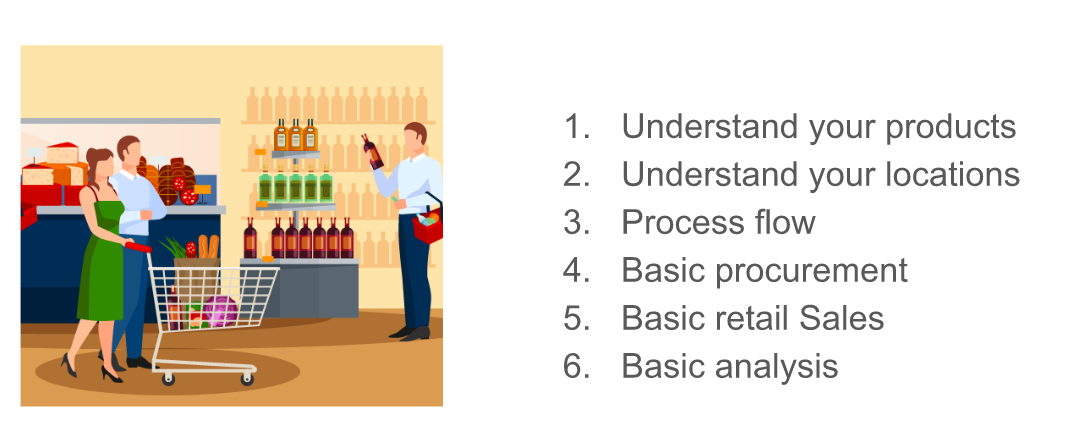
2. Postgraduate Students
For postgraduate business students, MonsoonSIM offers a platform to bridge advanced theory with practical, real-world application. Students in typical business degree programs, such as MBA, Master’s in Finance, Operations Management, or Marketing, benefit from immersive simulations that mirror real business environments, allowing them to apply their classroom knowledge to strategic decision-making.
Teaching Strategies:
Advanced Business Scenarios: Use simulations that build on core subjects like strategic management, finance, and operations. For example, students might manage a virtual company facing market expansion or supply chain disruptions, allowing them to apply concepts learned in Strategic Planning, Financial Analysis, and Operations Management. Starting with MonsoonSIM’s "Introduction to Enterprise Resource Planning for Beginners" microcourse, educators can modify and expand scenarios to fit the complexity needed at the postgraduate level.
Independent Problem Solving: Encourage postgraduate students to independently manage their company’s operations without step-by-step guidance. This will enhance their critical thinking, requiring them to make strategic decisions about resource allocation, budgeting, and market positioning—key components of courses like Corporate Finance, Entrepreneurship, or Leadership and Strategy.
Cross-Functional Collaboration: Design scenarios that require students to manage and understand the interplay between various business functions such as finance, marketing, supply chain, and human resources. This helps develop a holistic view, essential for subjects like Integrated Business Strategy or Operations and Supply Chain Management.
Learning Objectives:
- Strategic Thinking: Students will learn to develop and execute long-term business strategies, applying principles from Business Strategy and Corporate Governance courses.
- Financial Analysis and Decision-Making: Through simulations, students will refine their financial skills, learning how to interpret financial statements, manage budgets, and assess risks, key objectives in Corporate Finance or Financial Management courses.
- Operations Management: Postgraduates will gain experience in managing supply chains, optimizing operations, and maintaining inventory control, aligning with courses like Operations Management or Supply Chain Strategy.
- Check out how Indonesia's leading university achieved success with MonsoonSIM in their Operations Management course here.
- Leadership and Team Dynamics: By leading virtual teams and managing cross-functional business units, students will enhance their leadership and decision-making skills, vital for Leadership and Organizational Behavior courses.
What are the potential challenges or limitations in implementing business simulations in business schools?
Implementing business simulations in business schools can be challenging due to several potential limitations. Here are some of the challenges and limitations that have been identified:
- Cost: Developing and implementing business simulations can be expensive, which may limit their use in some educational institutions
- Time: Business simulations can be time-consuming, which may make it difficult to fit them into a busy curriculum
- Technology: Business simulations often require specialized software and hardware, which may not be available in all educational institutions
- Realism: Business simulations may not accurately reflect the complexity and uncertainty of real-world business situations, which could limit their effectiveness
- Feedback: Providing effective feedback to students during and after a business simulation can be challenging, which could limit their ability to learn from the experience
- Engagement: Business simulations may not engage all students equally, which could limit their effectiveness as a teaching tool
Despite these challenges, business simulations can be a valuable tool for teaching business concepts and skills. They provide students with experience and can help the gap between theory and practice
How can business simulations enhance teamwork and collaboration skills among students?
Business simulations can enhance teamwork and collaboration among students in several ways:
- Collaborative learning: Business simulations provide a collaborative learning environment where students work together to achieve a common goal. This can help students develop skills, such as communication, cooperation, and conflict resolution.
- Shared decision-making: Business simulations require students to make decisions as a team, which can help them develop shared decision-making skills. This can help students learn how to work together to make decisions that benefit the team as a whole.
- Real-world scenarios: Business simulations provide real-world scenarios that require students to work together to solve complex problems.
- Feedback and reflection: Business simulations provide opportunities for feedback and reflection. This can help students learn from their mistakes and improve their performance in future simulations.
- Experiential learning: Business simulations provide an experiential learning environment where students can learn by doing. This can help students develop teamwork and collaboration skills by providing them with hands-on experience in a controlled and safe environment.
By using business simulations, students can develop practical skills that are difficult to teach in a traditional classroom setting and prepare for future careers in industries that require strong teamwork and collaboration skills.
Interested in understanding the power of gamification in boosting team collaboration? Dive deeper into MonsoonSIM's innovative approach with our latest article on enhancing team collaboration through gamification in corporate training.
How do Business Simulations apply Artificial Intelligence:
Business simulations and AIcan be leveraged in education to provide a more immersive and dynamic learning experience. AI can be used to create tailored content for learners, while business simulations provide a vehicle for experiential learning. Here are some ways in which business simulations and AI can be used in an AI-driven economy:
Specific Examples of How AI is Used Within MonsoonSIM
Boz AI - Personalized Feedback and Guidance
- Functionality: Boz AI is an intelligent assistant integrated into MonsoonSIM that offers real-time, personalized feedback and guidance to learners.
- Usage: During the simulation, Boz AI monitors the actions and decisions of the participants. It provides tailored advice on areas such as inventory management, marketing strategies, and financial planning. This helps learners understand the consequences of their decisions and improve their strategies.
- Example: If a team’s retail store is running low on stock, Boz AI might suggest increasing the order quantity or adjusting the pricing strategy to balance demand and supply more effectively.
Learner Activity Monitoring
- Functionality: MonsoonSIM uses AI to track and analyze learner activities throughout the simulation.
- Usage: Facilitators can use the learner activity monitoring slider to observe and analyze participant behaviors, identify areas where learners are struggling, and offer targeted support.
- Example: The AI system might detect that a team is consistently underperforming in financial management. It can then provide specific feedback on financial planning and suggest relevant resources to help the team improve.
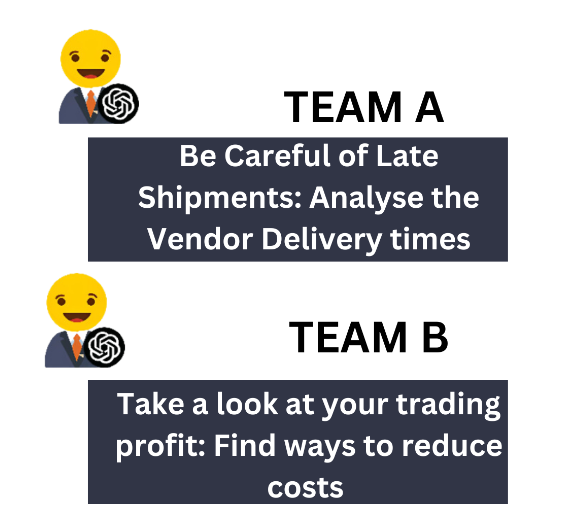
By leveraging AI, MonsoonSIM continues to offer personalized, immersive, and effective learning experiences that prepare learners for the complexities of the real business world.
Artificial intelligence (AI) is transforming the way teachers and students engage with business simulations, such as MonsoonSim. With AI-guided assistance, teachers can effectively facilitate courses and create engaging learning environments. Students benefit from real-time guidance and personalized support, allowing them to navigate the complexities of the simulation and make informed decisions. AI in business simulations, including MonsoonSim, enhances the educational experience for all involved, fostering collaboration and optimizing learning outcomes.
MonsoonSIM Active Guide Update (Enhanced with Artificial Intelligence)
What are examples of real-world business simulations and scenarios replicated by business simulations?
Business simulations, such as MonsoonSIM, are designed to replicate real-world business scenarios. They incorporate a range of factors that influence business operations, both at the macro and micro levels.
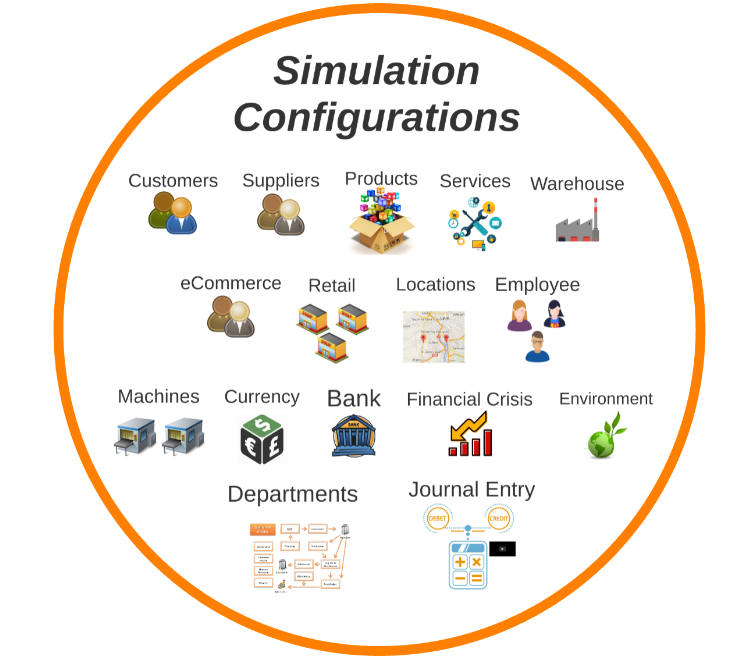
Macro Factors:
- Economic Dynamics: Business simulations often incorporate economic variables like inflation, economic growth, and exchange rates. These elements can impact consumer purchasing power and the cost of business inputs, mirroring real-world economic conditions.
- Societal Trends: Changes in consumer preferences, and population demographics are also often reflected in business simulations. These elements can influence the demand for a company's products or services.
- Technological Shifts: Business simulations like MonsoonSIM can also include technological changes, such as new inventions and innovations. These factors can affect business operations and the products or services they offer.
Micro Factors:
- Organizational Aspects: Factors specific to a company, such as its financial health, organizational structure, and management style, are often incorporated into business simulations. These elements can impact a company's competitive position and success.
- Customer Characteristics: Business simulations often consider factors related to a company's customers, such as their needs, preferences, and buying behaviors. These elements can influence the demand for a company's products or services.
- Competitive Environment: Factors related to a company's competitors, such as their strategies, strengths, and weaknesses, are also often included in business simulations. These elements can shape the competitive landscape in which a company operates.
- Supplier Relationships: Business simulations may also factor in elements related to a company's suppliers, such as their reliability, quality of inputs, and pricing. These factors can impact a company's cost structure and its ability to deliver quality products or services
For a more comprehensive read on MonsoonSIM check out our complete product description.
How can Business simulations provide guidance for career development?
- Skill development: Business simulations allow learners to develop practical skills that are applicable in real-world business scenarios. This can help learners identify their strengths and weaknesses and determine which skills they need to develop further to succeed in their chosen careers.
- Career exploration: Business simulations can expose learners to different career paths and industries. By practicing in a simulated environment, learners can gain a better understanding of what it takes to succeed in different careers and industries. This can help learners make informed decisions about their career paths and identify which industries they are most interested in.
- Feedback and reflection: Business simulations provide opportunities for feedback and reflection, which can help learners identify areas for improvement and adjust their approach By receiving feedback in a simulated environment, learners can improve their skills and performance in real-world scenarios.
- Networking: Business simulations can provide opportunities for learners to network with other learners and industry professionals. By working together in a simulated environment, learners can develop relationships with others in their field and gain insights into different career paths and industries.
- Career readiness: Business simulations can help learners develop the skills and knowledge needed to succeed in their chosen careers. By practicing in a simulated environment, learners can gain experience and confidence in their abilities to handle real-world scenarios.
Business simulations can provide guidance for career development by allowing learners to develop practical skills, and explore different career paths and industries.
Prepare your leaders for real-world challenges. Contact us to start your free trial of MonsoonSIM’s crisis management training.
How to Try Using Using Business Simulations In My Curriculum or Training Program?
Integrating business simulations into your curriculum or training program can greatly enhance the learning experience for your participants. One option worth exploring is a reputable gamification and simulation platform that offers a range of immersive business simulation solutions.
One such platform that has gained recognition in the industry is MonsoonSIM. This platform provides educators and trainers with a comprehensive suite of tools to incorporate business simulations effectively. By utilizing this platform, you can create engaging learning experiences that promote critical thinking, decision-making, and problem-solving skills within a realistic business environment.
To explore the possibilities of using a gamification and simulation platform like MonsoonSIM, you can inquire about their available options for trial access. Many platforms offer trial periods, which allow you to test the platform's capabilities, assess its suitability for your curriculum or training program, and evaluate the impact it can have on your learners' development.
During the trial period, you'll have the opportunity to gain hands-on experience with the platform. You’ll be able to run simulations up to 20 games with your students for FREE and assess the benefits it can bring to your curriculum or training structure. Additionally, platforms like MonsoonSIM often provide resources such as webinars and discussions to help you understand how to integrate business simulations effectively into your educational initiatives.
By exploring the offerings of gamification and simulation platforms like MonsoonSIM, you can unlock the potential for immersive and impactful learning experiences that enhance the development of essential business skills.
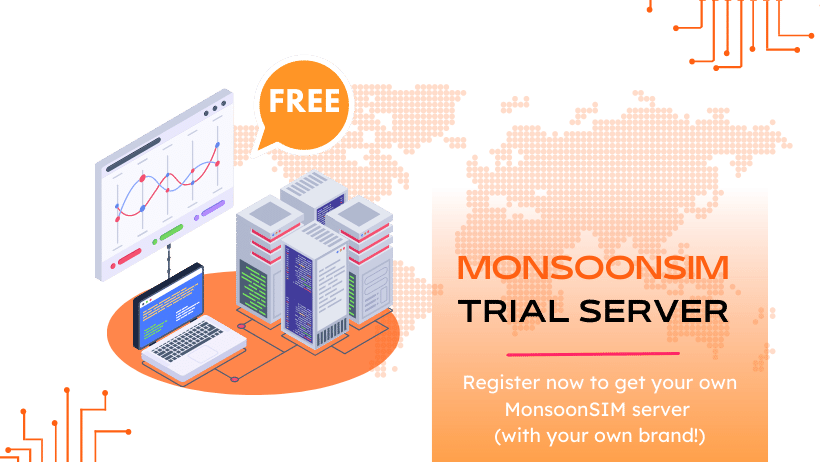
To see how you can access your free trial start here. If you'd like to just learn more about MonsoonSIM, sign up to our newsletter!
Follow Us

Featured News

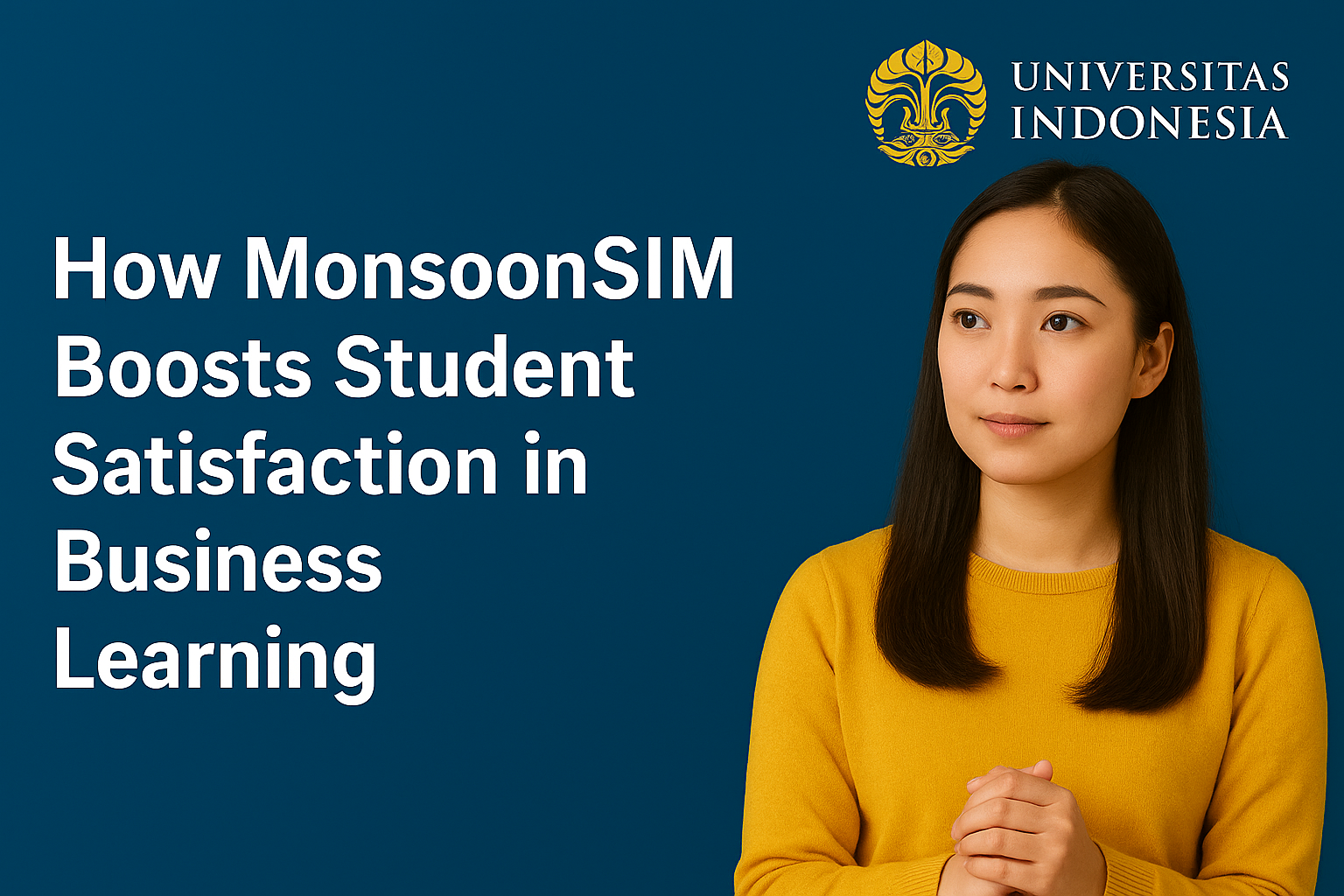
Latest News


